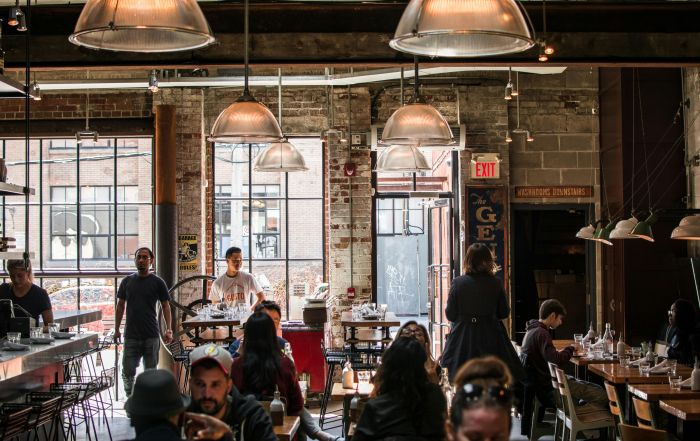Phenium’s CEO, Sari Stenfors answers your food safety questions on World Food Safety Day

As co-founder and CEO of Phenium, I remember a time when there wasn’t the same widespread emphasis put on health and hygiene. In fact, I would often find myself explaining the value of a well-managed food safety system to those who played a more general role in the industry.
From my perspective, as I navigate food safety in a post-covid world, I am leaning into new technology, pushing AI tech further and embracing changing legislation. As things change, I understand that it can lead to questions, concerns and implications – so over the past two weeks, you’ve been submitting your questions around food safety and I am super excited to be answering them today, on World Food Safety Day.
1. Food safety seems obvious and simple. Is it really?
Whilst many of the fundamentals of food safety might seem obvious, you are not alone in questioning the very notion of whether it is clear and simple. Food safety needs training, monitoring and collaboration, so you will need to make food safety an everyday topic with all staff members and assume that even the basics are worth covering. Not in a patronizing way, but in a clear and totally transparent way. From the four C’s: clean, cook and chill through to the need for keeping logs and understanding the basics around the kitchen, it’s vital that everyone plays a part – and what might seem obvious to you – needs to be also obvious to your staff f. The upside of good food safety practices is happy returning customers. The risk of a food safety incident can be costly, upsetting and in some cases, fatal – so it is worth being strong, clear and prescriptive about the way food safety is dealt with in your business.
2. How is AI helping to ensure food safety?
As you know, I am passionate about AI – the fact that it can offer so many ways to improve food safety is literally revolutionizing the way we monitor the safeness of our food. From quality control, such as an automated inspection that gives you a food safety score through to monitoring and compliance, ai is changing the way we manage our kitchens on a daily basis. When it comes to monitoring, AI-powered sensors and IoT devices can continuously record factors such as humidity and heat . By providing real-time data and alerts, these systems enable proactive interventions to prevent food safety incidents before they occur. Ai also plays an important part in keeping logs and checklists. In addition AI-powered software can analyze data to identify compliance gaps, assess risks, and recommend corrective actions to ensure you remain compliant at all times. It can even predict when refrigeration equipment maintenance is needed and alert you before the equipment fails.
3. What is the worst food safety incident that has occured in recent years?
In 2020 Chiplote was forced to pay over $25 million in fines after more than 1,100 people became sick during a period between 2015-2018. The food safety incident occurred due to poor hygiene procedures as well as policies which forced sick employees to come into work rather than stay at home. However, whilst that is probably the most well-publicized recent foodborne illness incident, back in 2011 an outbreak of listeriosis, from cantaloupes grown in a farm in Colorado, led to devastating results. The outbreak caused a total of 33 deaths from the 147 infected patients.
4. What is the law around selling contaminated food?
Did you know that before 1906, we had no laws concerning food safety and regulating how food is produced, manufactured, and distributed here in the US? Thankfully today we have much more legislation around food safety, including the Food Safety Modernisation Act which was introduced in 2011. This is arguably the biggest change to the law as it moved the emphasis away from reacting to incidents and instead focused on prevention. Ultimately if you don’t follow the guidance set out by the FDA then you can be liable to pay fines, you are also at risk of being sued and your operation could be closed There are constant updates to the legislation around foodborne illness, so it is worth checking out the Phenium website to stay ahead of any new changes.
5. How can AI help make your kitchen more efficient?
From digitizing pen and paper checklists to monitoring fridge and freezers – as well a range of other kitchen temperatures, Ai can power a complete digital food safety solution for your kitchen. Phenium’s AI-powered kitchen intelligence has avoided over 2,400 food safety incidents since it launched in 2019. The app has also saved over $1.2 million in food soiling costs, so it can clearly make your kitchen safer and more efficient. But don’t just take my word for it, book a demo today to see how it can help make your kitchen a happier, healthier place.
6. What California state laws and regulations are there?
California has its own set of food safety laws and regulations that complement federal regulations. At any location in the USA, which handles food, there are three levels of regulations, federal, state and city or county. Here are some of the key regulations and acts
The California Retail Food Code (CalCode) governs all aspects of food safety in retail food establishments. It includes regulations on food handling, preparation, storage, employee hygiene, facility maintenance, and pest control.
The California Food and Agricultural Code covers areas such as food safety standards, inspection procedures, and enforcement actions. Key provisions include guidance around dairy, meat, poultry, and egg safety. There are also set regulations around seafood safety to ensure that seafood sold in California is safe, wholesome, and properly labeled.
From a wider perspective, here in California we have the California Health and Safety Code. It includes requirements for food facility permits, foodborne illness reporting, and sanitation standards. There is also the Farmers Market and Community Event Food Safety and Cottage Food Operations which allows individuals to prepare and sell certain low-risk foods from their homes.
California’s Implements and enforces the FDA Food Safety Modernization Act (FSMA) at state level ensuring that food producers, processors, and distributors comply with both federal and state requirements.
And more recently, the California Food Safety Act bans the sale of food containing four possibly toxic additives. The law, which goes into effect on January 1, 2027, will require food manufacturers to reformulate their products or face a large fine.
In addition, there is regulation around the issuing of a food handler card for every employee working with food. The onus is put on the employer to allocate time for training, pay for the examination and any necessary expenditures or losses associated with the employee obtaining a food handler card.


